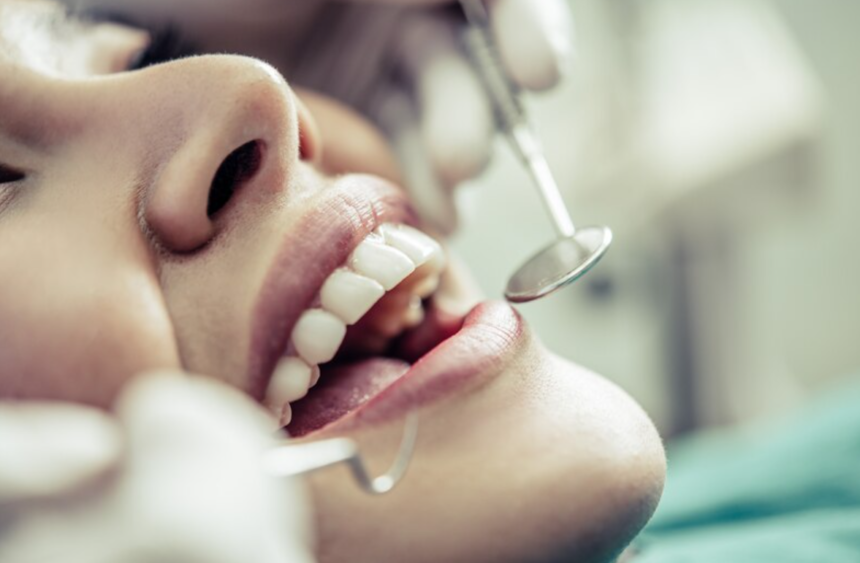General dentistry encompasses a wide range of preventive, diagnostic, and treatment services aimed at maintaining oral health and addressing common dental concerns.
General dentistry in Pasadena focuses on preventive care, emphasizing the importance of regular dental check-ups and cleanings to detect and address potential issues before they escalate into more significant problems.
Through comprehensive examinations, dentists can identify early signs of decay, gum disease, oral cancer, or other dental concerns, allowing for timely intervention and treatment.
Additionally, general dentists possess extensive diagnostic expertise, utilizing advanced tools and technologies to assess patients’ oral health accurately. From routine check-ups and cleanings to complex restorative procedures, general dentists play a crucial role in promoting oral wellness and ensuring that patients achieve and maintain healthy smiles throughout their lives.
Preventive Care: Preserving Oral Health
- Regular Dental Check-ups: Regular dental check-ups are the cornerstone of preventive care in general dentistry. During these appointments, dentists conduct thorough examinations of patients’ teeth, gums, and overall oral health, allowing them to detect any signs of decay, disease, or abnormalities early on.
- Professional Cleanings: Professional dental cleanings are essential for removing plaque, tartar, and bacteria buildup that cannot be effectively removed through regular brushing and flossing alone. By removing these deposits, dental hygienists help prevent cavities, gum disease, and other oral health issues.
Diagnostic Expertise: Identifying Dental Concerns
- Advanced Diagnostic Tools: General dentists utilize advanced diagnostic tools and technologies to assess patients’ oral health accurately. These tools may include digital X-rays, intraoral cameras, and 3D imaging, enabling dentists to visualize the internal structures of the mouth and identify any underlying issues.
- Comprehensive Examinations: Through comprehensive examinations, dentists can identify various dental concerns, including cavities, gum disease, oral cancer, and orthodontic issues. Early detection allows for prompt intervention and treatment, preventing further progression of dental problems.
Basic Dental Treatments: Restoring Oral Health
- Dental Fillings: Dental fillings are commonly used to repair teeth that have been damaged by decay or cavities. During this procedure, dentists remove the decayed portion of the tooth and fill the cavity with a durable material, such as composite resin or amalgam, restoring the tooth’s strength and function.
- Root Canal Therapy: Root canal therapy is performed to save a tooth that has become infected or damaged due to deep decay or trauma. During this procedure, the infected pulp inside the tooth is removed, and the root canal is cleaned, disinfected, and sealed to prevent further infection.
Educational Outreach: Empowering Patients
- Patient Education Initiatives: General dentists engage in educational outreach to empower patients with the knowledge and skills they need to maintain optimal oral health. Through patient education initiatives, dentists educate individuals about proper oral hygiene practices, the importance of regular dental visits, and the role of nutrition in preserving healthy teeth and gums.
- Individualized Oral Health Plans: Dentists work closely with patients to develop individualized oral health plans tailored to their unique needs and circumstances. These plans may include personalized recommendations for brushing and flossing techniques, dietary modifications, and preventive treatments to address specific dental concerns.
Continuity of Care: Building Long-Term Relationships
- Lifetime Dental Care: General dentists provide continuity of care throughout patients’ lives, from childhood through adulthood and into the senior years. By establishing long-term relationships with their patients, dentists gain a comprehensive understanding of their oral health history, preferences, and individual needs.
- Coordination of Care: Dentists coordinate care with other dental specialists, such as orthodontists, oral surgeons, and periodontists, to ensure that patients receive the highest quality of comprehensive dental care. This collaborative approach ensures that patients’ oral health needs are met effectively and efficiently.
Conclusion
General dentistry plays a comprehensive role in preserving oral health and addressing common dental concerns. From preventive care and diagnostic expertise to basic dental treatments and patient education, general dentists provide essential services that promote oral wellness and improve overall well-being.
By prioritizing regular dental visits and working closely with their dentists, individuals can take proactive steps to maintain healthy smiles and enjoy the benefits of optimal oral health throughout their lives.



